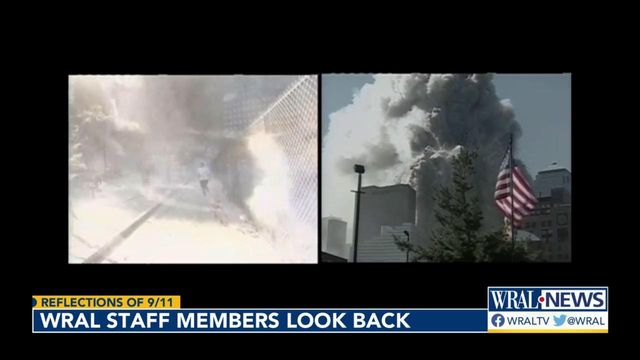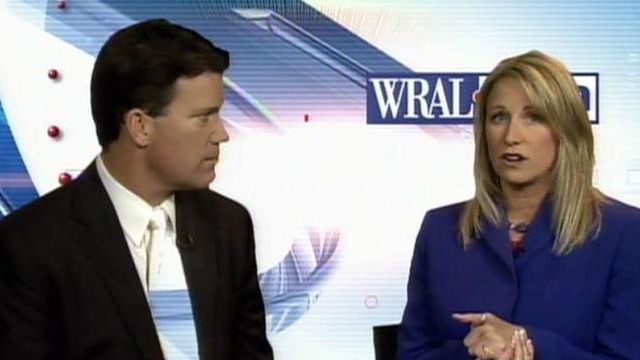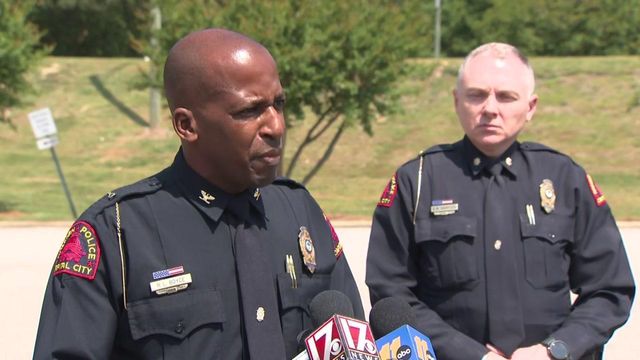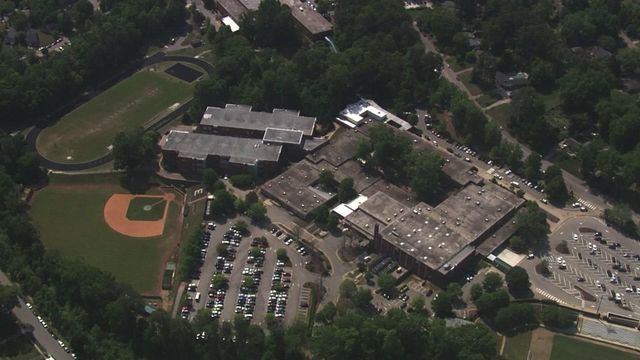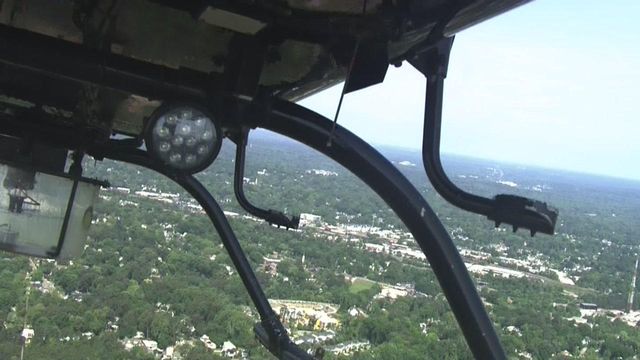WRAL photographer, reporter say covering 9/11 changed them forever
Photographer Ed Wilson was driving to work when he heard on the radio that a plane had struck the World Trade Center in New York. As he walked into the newsroom, a second plane hit the tower. A couple minutes later, he was asked to rush to New York City.
"It was pretty shocking, pretty nervous, a scary time," Wilson said.
He and former WRAL reporter Len Besthoff got to Jersey City, New Jersey, on the night of Sept. 11, 2001. After the attacks that morning, all planes across the United States were grounded, so Wilson and Besthoff made the 9-hour drive.

"You could see the tower," he said. "Everything was still on fire, and you could see the smoke coming across the Hudson River there."
Wilson said he immediately knew he was witnessing the biggest story that would ever happen in the world during his generation. He stayed in Jersey City for two weeks, telling stories about how resilient the American people were.
"People just really came together, trying to help," he said.
Covering the attack on the Pentagon
When a plane hit the Pentagon, reporter Scott Mason was sent to Washington, D.C. He said he remembers picking up five dry cleaned shirts and heading out the door.
"We were worried about the danger," he said. "What were were going to find in Washington, D.C.? Was all of America under attack?"
Mason and his photographer, Chad Flowers, found people lined up in front of the Pentagon. The nation's capital was a ghost town. There were no tourists, no people and no cars in front of the U.S. Capitol. But closer to the Pentagon, he saw lines of people peering over a barricade.
"Everywhere you went, you just saw the pain of people," Mason said.
Mason said that he was there to tell what happened, but also to provide people with hope. That's what kept him afloat while covering the terrorist attacks.
"I felt that I was meant to be there, doing these patriotic stories," Mason said.
He recognized a sense of collective strength that he had never before felt in his lifetime.
"People were coming together," Mason said. "There were signs of patriotism everywhere, and again, I think that's what we strove to capture."
Mason said he never experienced patriotism in the same way again.
"I hope that's what the younger generation realizes, how fortunate they are to be in this country, to be in America," Mason said. "There was strength."
Mason said he went to grab a bite to eat at a diner, and people crowded around to watch a TV where famous Evangelical pastor Billy Graham spoke about the attacks.
"Everybody there just stopped eating, stopped what they were doing, and their eyes were riveted on Billy Graham," Mason said. "Some of them were crying."
Both journalists say that 9/11 not only changed the country, it changed them.
"It changed me, and gave me a perspective on what's really important in life," Wilson said. "That's your family and your friends."



